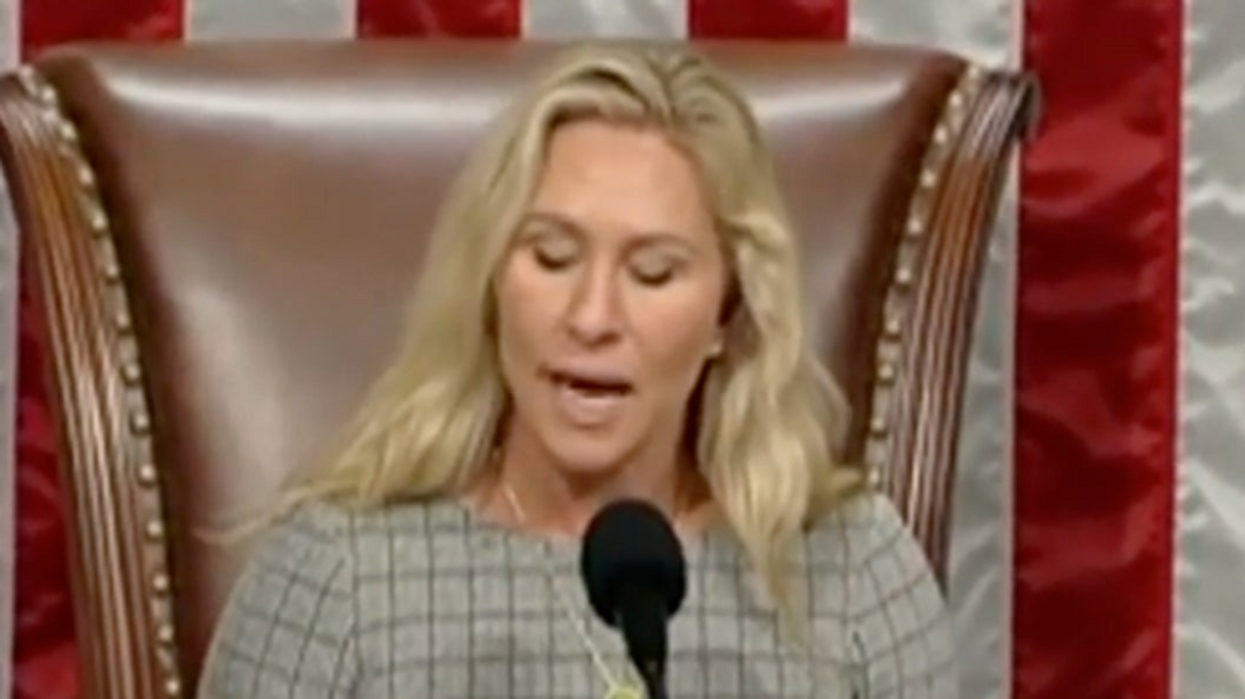Reprinted with permission from Press Run
Republicans want to make it harder for people to vote and easier for the GOP to invalidate election results. That's the distressing, historic truth as the party fully embraces an anti-democratic agenda.
Hiding behind Both Sides journalism, which portrays all political skirmishes as being the product of each party, the D.C. press continues to struggle to be honest about the GOP's radical turn. Recently the New York Times, as if trying to create a Both Sides archetype, including flawless examples of everything that's wrong and dangerous about the faulty form of journalism, published a painfully bad piece about GOP voter suppression. "Museum quality," was how New York University journalism professor Jay Rosen dubbed the Times' pitch-perfect Both Sides entry.
Strictly adhering to the he said/she said construct that the Times newsroom finds so comforting, the article made no effort to reach a logical conclusion in terms of which side in the voting 'debate' was being honest and accurate. Functioning as a clearing house for the Democratic and Republican quotes that were collected, the Times saw its job not as illuminating news consumers about a gravely important topic, but to simple type up competing quotes.
After reading the piece, former Seattle Times editor Mike Fancher tweeted it was, "an example of journalism that is accurate but not truthful. It is also harmful to democracy." Addressing the Times' executive editor he added, "Please, @deanbaquet, hire a public editor to help your newsroom become stewards of democracy."
The car wreck began with the headline: "In Congress, Republicans Shrug at Warnings of Democracy in Peril." Making clear that the article would view the topic through the eyes of the GOP, the headline stressed that Republicans were unconcerned about the issue at hand, which is exactly the message Republicans want to portray — it's no big deal.
Then the sub-headline: "As G.O.P. legislatures move to curtail voting rules, congressional Democrats say authoritarianism looms, but Republicans dismiss the concerns as politics as usual."
First, Republicans across the country are passing an unprecedented collection of voter suppression laws. But the Times won't use that clear language, instead opting for the watered down, "curtail voting rules." The word choice is important because if the Times had framed the article as one about "voter suppression" laws, it would make it much harder for Republicans to "shrug off" the allegations about putting democracy in peril.
Second, the Times places alongside each other the claims that voter suppression is a function of Republican authoritarianism, and that the GOP's dismissal that it's all "politics as usual." In the eyes of the Times those are equally valid and important points for readers to know. Democrats are saying our democracy is in clear danger and Republican says it's "politics as usual," which makes no sense. It's not "usual" for one of the two major political parties in this country to warn that America's nearly two-and-a-half centuries of democratic rule faces a looming internal and deliberate danger. In fact, that's the opposite of "usual" — it's unheard of.
From the outset, the Times frames the article as an impossible-to-solve disagreement between both parties, with the implication being that Both Sides have a valid point. They do not.
The avalanche of current GOP bills aim to shorten the early voting period, reduce the number of hours that people can vote on Election Day, eliminate drive-through voting centers, create stricter deadlines for returning absentee ballots, block early voting on Sunday, limit ballot drop boxes, restrict mail-in voting —basically any possible initiative Republicans can think of that would suppress the vote.
"The playbook that the Republican Party is executing at the state and national levels is very much consistent with actions taken by illiberal, anti-democratic, anti-pluralist parties in other democracies that have slipped away from free and fair elections," Lee Drutman, senior fellow at the New America think tank recently told the Washington Post.
Still, the Times clings to Both Sides.
Specifically, the daily blamed Democrats for partly creating the voting controversy. "Missteps by Democrats have fortified Republicans' attempts to downplay the dangers," the Times reported. "Some of them, including President Biden, have mischaracterized Georgia's voting law, handing Republicans ammunition to say that Democrats were willfully distorting what was happening at the state level." The example the article pointed to was when Biden once mistakenly said the Georgia voter suppression law would end voting at 5 p.m.
Republicans are doing everything in their power to invalidate future elections by passing voter suppression laws and empowering state legislatures to refuse to certify state tallies. It all represents a massive attempt to roll back democracy.
One quick example: This spring, Arkansas's Republican Gov. Asa Hutchinson signed into law seven different voting bills. One prohibits people from going within 100 feet of a polling place except with the intention of entering or exiting it. That would effectively ban giving food and water to voters stuck in long lines. Another bill invalidates absentee ballots that arrive on Election Day.
Yet against that stark and historic backdrop, the Times claimed that by misstating a single provision contained within one of the dozens of the GOP's voter suppression bills, Biden had "hand[ed] Republicans ammunition."
If so, he's not alone. The Times, with its shoddy Both Sides journalism, is also handing the GOP plenty of ammunition.












